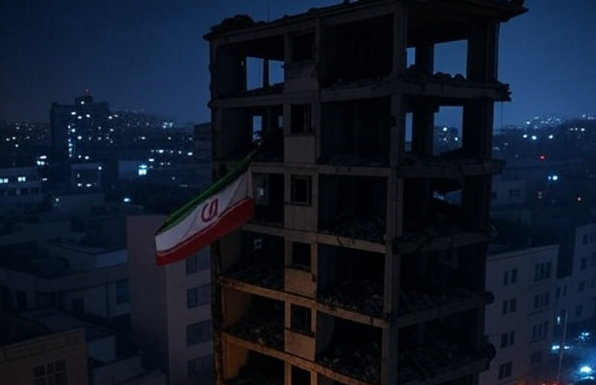Israel Strikes Over 80 Targets in Tehran Overnight:The Israel-Iran war has entered a dangerous new phase, with Israel launching overnight airstrikes on over 80 targets in Tehran. The ongoing conflict, now in its third day, has already claimed the lives of at least 128 people, including women and children, according to Iranian media. The situation continues to escalate as Iran fires ballistic missiles into Israel, while the Israeli government extends a national state of emergency. With rising civilian casualties, activated air defenses, and growing international concern, the region is teetering on the brink of a broader war.
Israel Strikes Over 80 Targets in Tehran Overnight
As the conflict between Israel and Iran intensifies for the third consecutive day, the Middle East is gripped by a dangerous escalation that shows no signs of de-escalation. At the heart of the chaos lies a rapidly evolving battlefield, multiple civilian casualties, and a growing chorus of international concern.
On the ground, Israel has accused Iran of launching a significant barrage of ballistic missiles, triggering air raid sirens across central and northern Israel. The Israeli government has responded by extending the state of emergency until June 30th, acknowledging the severity of the threat and the potential for continued violence.
Simultaneously, Israel has continued its offensive, striking over 80 targets in Tehran overnight. Iranian media has reported major blasts across central Tehran, with a daytime explosion near the city center drawing particular attention. Videos from the ground show thick plumes of smoke rising, while Iran’s air defenses have been activated in a bid to intercept incoming Israeli projectiles. One of the most notable incidents includes a strike on a police headquarters, which reportedly resulted in casualties.
According to Iranian state media, the Israeli bombardment on Friday and Saturday killed at least 128 people, including women and children, with hundreds more wounded. The scale of devastation has triggered outrage across the region and raised concerns of a wider conflict.
As both nations trade deadly blows, international actors are beginning to weigh in. U.S. President Donald Trump issued a statement via Truth Social urging Iran and Israel to make a deal quickly. Drawing a parallel to past negotiations between India and Pakistan, Trump claimed he could mediate a resolution by leveraging U.S. trade and diplomacy. However, given the magnitude of the violence and the geopolitical fallout, many analysts question the feasibility of such a deal under current circumstances.
Israeli Prime Minister Benjamin Netanyahu has remained defiant, warning Iran of severe consequences. He emphasized that Iran would “pay a very heavy price” for what he described as the premeditated killing of Israeli civilians, including women and children. Netanyahu reiterated that the Israeli Air Force would not pause its operations, stating plainly that the strikes will continue unabated.
In an interview, Nathan Paul Sutton, Operations Director at the Eyewitness Project, provided an unflinching analysis of the crisis. He argued that Israel’s initial strikes on Iran, which occurred amid peace negotiations between Iran and the United States over Tehran’s nuclear program, derailed any progress and made the prospect of a nuclear-armed Iran more likely. Sutton criticized Israel’s actions as being driven more by political necessity than strategic foresight and warned that the region could spiral into a broader war.
Sutton also addressed the waning credibility of the United States as a diplomatic actor. He cited America’s failure to prevent the attacks and its past inconsistency—particularly Trump’s withdrawal from the 2015 Iran nuclear deal—as evidence that the U.S. is no longer seen as a reliable negotiator. Moreover, he condemned Trump’s suggestion to involve Russian President Vladimir Putin in any peace negotiations, calling both Putin and Netanyahu “war criminals” and warning that such moves could further destabilize the region.
Amidst this diplomatic vacuum, Iran has turned to regional players such as Oman and Qatar to mediate future nuclear negotiations. Sutton pointed out that Gulf states like Qatar—and possibly China—may step into roles traditionally filled by the U.S., especially given China’s recent success in brokering a détente between Iran and Saudi Arabia. He also suggested that the European Union must now work to restore some balance in a region tilting toward greater instability.
As the missiles fly and civilians continue to die, hopes for peace look increasingly bleak. With international alliances shifting and both Iran and Israel hardening their positions, the path to diplomacy appears more fraught than ever. The world watches with bated breath, aware that the next move could either open the door to negotiations—or plunge the region into deeper chaos.
Disclaimer:
This article is for informational purposes only and reflects ongoing events as reported by credible news sources. The situation is fluid, and details may change rapidly. Readers are encouraged to stay updated through official and trusted media channels.

